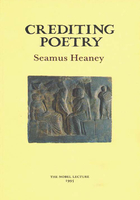My true name is so well known in the records or registers at Newgate, and in the Old Bailey, and there are some things of such consequence still depending there, relating to my particular conduct, that it is not be expected I should set my name or the account of my family to this work; perhaps, after my death, it may be better known; at present it would not be proper, no not though a general pardon should be issued, even without exceptions and reserve of persons or crimes.
It is enough to tell you, that as some of my worst comrades, who are out of the way of doing me harm (having gone out of the world by the steps and the string, as I often expected to go ), knew me by the name of Moll Flanders, so you may give me leave to speak of myself under that name till I dare own who I have been, as well as who I am.
I have been told that in one of neighbour nations, whether it be in France or where else I know not, they have an order from the king, that when any criminal is condemned, either to die, or to the galleys, or to be transported, if they leave any children, as such are generally unprovided for, by the poverty or forfeiture of their parents, so they are immediately taken into the care of the Government, and put into a hospital called the House of Orphans, where they are bred up, clothed, fed, taught, and when fit to go out, are placed out to trades or to services, so as to be well able to provide for themselves by an honest, industrious behaviour.
Had this been the custom in our country, I had not been left a poor desolate girl without friends, without clothes, without help or helper in the world, as was my fate; and by which I was not only exposed to very great distresses, even before I was capable either of understanding my case or how to amend it, but brought into a course of life which was not only scandalous in itself, but which in its ordinary course tended to the swift destruction both of soul and body.
But the case was otherwise here. My mother was convicted of felony for a certain petty theft scarce worth naming, viz. having an opportunity of borrowing three pieces of fine holland of a certain draper in Cheapside. The circumstances are too long to repeat, and I have heard them related so many ways, that I can scarce be certain which is the right account.
However it was, this they all agree in, that my mother pleaded her belly, and being found quick with child, she was respited for about seven months; in which time having brought me into the world, and being about again, she was called down, as they term it, to her former judgment, but obtained the favour of being transported to the plantations, and left me about half a year old; and in bad hands, you may be sure.
This is too near the first hours of my life for me to relate anything of myself but by hearsay; it is enough to mention, that as I was born in such an unhappy place, I had no parish to have recourse to for my nourishment in my infancy; nor can I give the least account how I was kept alive, other than that, as I have been told, some relation of my mother's took me away for a while as a nurse, but at whose expense, or by whose direction, I know nothing at all of it.
The first account that I can recollect, or could ever learn of myself, was that I had wandered among a crew of those people they call gypsies, or Egyptians; but I believe it was but a very little while that I had been among them, for I had not had my skin discoloured or blackened, as they do very young to all the children they carry about with them; nor can I tell how I came among them, or how I got from them.
It was at Colchester, in Essex, that those people left me; and I have a notion in my head that I left them there (that is, that I hid myself and would not go any farther with them), but I am not able to be particular in that account; only this I remember, that being taken up by some of the parish officers of Colchester, I gave an account that I came into the town with the gypsies, but that I would not go any farther with them, and that so they had left me, but whither they were gone that I knew not, nor could they expect it of me; for though they send round the country to inquire after them, it seems they could not be found.
I was now in a way to be provided for; for though I was not a parish charge upon this or that part of the town by law, yet as my case came to be known, and that I was too young to do any work, being not above three years old, compassion moved the magistrates of the town to order some care to be taken of me, and I became one of their own as much as if I had been born in the place.
In the provision they made for me, it was my good hap to be put to nurse, as they call it, to a woman who was indeed poor but had been in better circumstances, and who got a little livelihood by taking such as I was supposed to be, and keeping them with all necessaries, till they were at a certain age, in which it might be supposed they might go to service or get their own bread.
This woman had also had a little school, which she kept to teach children to read and to work; and having, as I have said, lived before that in good fashion, she bred up the children she took with a great deal of art, as well as with a great deal of care.
But that which was worth all the rest, she bred them up very religiously, being herself a very sober, pious woman, very house-wifely and clean, and very mannerly, and with good behaviour. So that in a word, expecting a plain diet, coarse lodging, and mean clothes, we were brought up as mannerly and as genteelly as if we had been at the dancing-school.
I was continued here till I was eight years old, when I was terrified with news that the magistrates (as I think they called them) had ordered that I should go to service. I was able to do but very little service wherever I was to go, except it was to run of errands and be a drudge to some cookmaid, and this they told me of often, which put me into a great fright; for I had a thorough aversion to going to service, as they called it (that is, to be a servant), though I was so young; and I told my nurse, as we called her, that I believed I could get my living without going to service, if she pleased to let me; for she had taught me to work with my needle, and spin worsted, which is the chief trade of that city, and I told her that if she would keep me, I would work for her, and I would work very hard.
I talked to her almost every day of working hard; and, in short, I did nothing but work and cry all day, which grieved the good, kind woman so much, that at last she began to be concerned for me, for she loved me very well.
One day after this, as she came into the room where all we poor children were at work, she sat down just over against me, not in her usual place as mistress, but as if she set herself on purpose to observe me and see me work. I was doing something she had set me to; as I remember, it was marking some shirts which she had taken to make, and after a while she began to talk to me. 'Thou foolish child,' says she, 'thou art always crying (for I was crying then); 'prithee, what dost cry for?' 'Because they will take me away,' says I, 'and put me to service, and I can't work housework.' 'Well, child,' says she, 'but though you can't work housework, as you call it, you will learn it in time, and they won't put you to hard things at first.' 'Yes, they will,' says I, 'and if I can't do it they will beat me, and the maids will beat me to make me do great work, and I am but a little girl and I can't do it'; and then I cried again, till I could not speak any more to her.
This moved my good motherly nurse, so that she from that time resolved I should not go to service yet; so she bid me not cry, and she would speak to Mr. Mayor, and I should not go to service till I was bigger.
Well, this did not satisfy me, for to think of going to service was such a frightful thing to me, that if she had assured me I should not have gone till I was twenty years old, it would have been the same to me; I should have cried, I believe, all the time, with the very apprehension of its being to be so at last.
When she saw that I was not pacified yet, she began to be angry with me. 'And what would you have?' says she; 'don't I tell you that you shall not go to service till your are bigger?' 'Ay,' said I, 'but then I must go at last.' 'Why, what?' said she; 'is the girl mad? What would you be-a gentlewoman?' 'Yes,' says I, and cried heartily till I roared out again.
This set the old gentlewoman a-laughing at me, as you may be sure it would. 'Well, madam, forsooth,' says she, gibing at me, 'you would be a gentlewoman; and pray how will you come to be a gentlewoman? What! will you do it by your fingers' end?'
'Yes,' says I again, very innocently.
'Why, what can you earn?' says she; 'what can you get at your work?'
'Threepence,' said I, 'when I spin, and fourpence when I work plain work.'
'Alas! poor gentlewoman,' said she again, laughing, 'what will that do for thee?'
'It will keep me,' says I, 'if you will let me live with you.' And this I said in such a poor petitioning tone, that it made the poor woman's heart yearn to me, as she told me afterwards.
'But,' says she, 'that will not keep you and buy you clothes too; and who must buy the little gentlewoman clothes?' says she, and smiled all the while at me.
'I will work harder, then,' says I, 'and you shall have it all.'
'Poor child! it won't keep you,' says she; 'it will hardly keep you in victuals.'
'Then I will have no victuals,' says I, again very innocently; 'let me but live with you.'
'Why, can you live without victuals?' says she.
'Yes,' again says I, very much like a child, you may be sure, and still I cried heartily.
I had no policy in all this; you may easily see it was all nature; but it was joined with so much innocence and so much passion that, in short, it set the good motherly creature a-weeping too, and she cried at last as fast as I did, and then took me and led me out of the teaching-room. 'Come,' says she, 'you shan't go to service; you shall live with me'; and this pacified me for the present.
Some time after this, she going to wait on the Mayor, and talking of such things as belonged to her business, at last my story came up, and my good nurse told Mr. Mayor the whole tale. He was so pleased with it, that he would call his lady and his two daughters to hear it, and it made mirth enough among them, you may be sure.
However, not a week had passed over, but on a sudden comes Mrs. Mayoress and her two daughters to the house to see my old nurse, and to see her school and the children. When they had looked about them a little, 'Well, Mrs. --,' says the Mayoress to my nurse, 'and pray which is the little lass that intends to be a gentlewoman?' I heard her, and I was terribly frighted at first, though I did not know why neither; but Mrs. Mayoress comes up to me. 'Well, miss,' says she, 'and what are you at work upon?' The word miss was a language that had hardly been heard of in our school, and I wondered what sad name it was she called me. However, I stood up, made a curtsy, and she took my work out of my hand, looked on it, and said it was very well; then she took up one of the hands. 'Nay,' says she, 'the child may come to be a gentlewoman for aught anybody knows; she has a gentlewoman's hand,' says she. This pleased me mightily, you may be sure; but Mrs. Mayoress did not stop there, but giving me my work again, she put her hand in her pocket, gave me a shilling, and bid me mind my work, and learn to work well, and I might be a gentlewoman for aught she knew.
Now all this while my good old nurse, Mrs. Mayoress, and all the rest of them did not understand me at all, for they meant one sort of thing by the word gentlewoman, and I meant quite another; for alas! all I understood by being a gentlewoman was to be able to work for myself, and get enough to keep me without that terrible bugbear going to service, whereas they meant to live great, rich and high, and I know not what.
Well, after Mrs. Mayoress was gone, her two daughters came in, and they called for the gentlewoman too, and they talked a long while to me, and I answered them in my innocent way; but always, if they asked me whether I resolved to be a gentlewoman, I answered Yes. At last one of them asked me what a gentlewoman was? That puzzled me much; but, however, I explained myself negatively, that it was one that did not go to service, to do housework. They were pleased to be familiar with me, and like my little prattle to them, which, it seems, was agreeable enough to them, and they gave me money too.
As for my money, I gave it all to my mistress-nurse, as I called her, and told her she should have all I got for myself when I was a gentlewoman, as well as now. By this and some other of my talk, my old tutoress began to understand me about what I meant by being a gentlewoman, and that I understood by it no more than to be able to get my bread by my own work; and at last she asked me whether it was not so.
I told her, yes, and insisted on it, that to do so was to be a gentlewoman; 'for,' says I, 'there is such a one,' naming a woman that mended lace and washed the ladies' laced-heads; 'she,' says I, 'is a gentlewoman, and they call her madam.'
'Poor child,' says my good old nurse, 'you may soon be such a gentlewoman as that, for she is a person of ill fame, and has had two or three bastards.'
I did not understand anything of that; but I answered, 'I am sure they call her madam, and she does not go to service nor do housework'; and therefore I insisted that she was a gentlewoman, and I would be such a gentlewoman as that.
The ladies were told all this again, to be sure, and they made themselves merry with it, and every now and then the young ladies, Mr. Mayor's daughters, would come and see me, and ask where the little gentlewoman was, which made me not a little proud of myself.
This held a great while, and I was often visited by these young ladies, and sometimes they brought others with them; so that I was known by it almost all over the town.
I was now about ten years old, and began to look a little womanish, for I was mighty grave and humble, very mannerly, and as I had often heard the ladies say I was pretty, and would be a very handsome woman, so you may be sure that hearing them say so made me not a little proud. However, that pride had no ill effect upon me yet; only, as they often gave me money, and I gave it to my old nurse, she, honest woman, was so just to me as to lay it all out again for me, and gave me head-dresses, and linen, and gloves, and ribbons, and I went very neat, and always clean; for that I would do, and if I had rags on, I would always be clean, or else I would dabble them in water myself; but, I say, my good nurse, when I had money given me, very honestly laid it out for me, and would always tell the ladies this or that was bought with their money; and this made them oftentimes give me more, till at last I was indeed called upon by the magistrates, as I understood it, to go out to service; but then I was come to be so good a workwoman myself, and the ladies were so kind to me, that it was plain I could maintain myself-that is to say, I could earn as much for my nurse as she was able by it to keep me-so she told them that if they would give her leave, she would keep the gentlewoman, as she called me, to be her assistant and teach the children, which I was very well able to do; for I was very nimble at my work, and had a good hand with my needle, though I was yet very young.
But the kindness of the ladies of the town did not end here, for when they came to understand that I was no more maintained by the public allowance as before, they gave me money oftener than formerly; and as I grew up they brought me work to do for them, such as linen to make, and laces to mend, and heads to dress up, and not only paid me for doing them, but even taught me how to do them; so that now I was a gentlewoman indeed, as I understood that word, I not only found myself clothes and paid my nurse for my keeping, but got money in my pocket too beforehand.
The ladies also gave me clothes frequently of their own or their children's; some stockings, some petticoats, some gowns, some one thing, some another, and these my old woman managed for me like a mere mother, and kept them for me, obliged me to mend them, and turn them and twist them to the best advantage, for she was a rare housewife.
At last one of the ladies took so much fancy to me that she would have me home to her house, for a month, she said, to be among her daughters.
Now, though this was exceeding kind in her, yet, as my old good woman said to her, unless she resolved to keep me for good and all, she would do the little gentlewoman more harm than good. 'Well,' says the lady, 'that's true; and therefore I'll only take her home for a week, then, that I may see how my daughters and she agree together, and how I like her temper, and then I'll tell you more; and in the meantime, if anybody comes to see her as they used to do, you may only tell them you have sent her out to my house.'
This was prudently managed enough, and I went to the lady's house; but I was so pleased there with the young ladies, and they so pleased with me, that I had enough to do to come away, and they were as unwilling to part with me.
However, I did come away, and lived almost a year more with my honest old woman, and began now to be very helpful to her; for I was almost fourteen years old, was tall of my age, and looked a little womanish; but I had such a taste of genteel living at the lady's house that I was not so easy in my old quarters as I used to be, and I thought it was fine to be a gentlewoman indeed, for I had quite other notions of a gentlewoman now than I had before; and as I thought, I say, that it was fine to be a gentlewoman, so I loved to be among gentlewomen, and therefore I longed to be there again.
About the time that I was fourteen years and a quarter old, my good nurse, mother I rather to call her, fell sick and died. I was then in a sad condition indeed, for as there is no great bustle in putting an end to a poor body's family when once they are carried to the grave, so the poor good woman being buried, the parish children she kept were immediately removed by the church-wardens; the school was at an end, and the children of it had no more to do but just stay at home till they were sent somewhere else; and as for what she left, her daughter, a married woman with six or seven children, came and swept it all away at once, and removing the goods, they had no more to say to me than to jest with me, and tell me that the little gentlewoman might set up for herself if she pleased.
I was frighted out of my wits almost, and knew not what to do, for I was, as it were, turned out of doors to the wide world, and that which was still worse, the old honest woman had two-and-twenty shillings of mine in her hand, which was all the estate the little gentlewoman had in the world; and when I asked the daughter for it, she huffed me and laughed at me, and told me she had nothing to do with it.
It was true the good, poor woman had told her daughter of it, and that it lay in such a place, that it was the child's money, and had called once or twice for me to give it me, but I was, unhappily, out of the way somewhere or other, and when I came back she was past being in a condition to speak of it. However, the daughter was so honest afterwards as to give it me, though at first she used me cruelly about it.
Now was I a poor gentlewoman indeed, and I was just that very night to be turned into the wide world; for the daughter removed all the goods, and I had not so much as a lodging to go to, or a bit of bread to eat. But it seems some of the neighbours, who had known my circumstances, took so much compassion of me as to acquaint the lady in whose family I had been a week, as I mentioned above; and immediately she sent her maid to fetch me away, and two of her daughters came with the maid though unsent. So I went with them, bag and baggage, and with a glad heart, you may be sure. The fright of my condition had made such an impression upon me, that I did not want now to be a gentlewoman, but was very willing to be a servant, and that any kind of servant they thought fit to have me be.
But my new generous mistress, for she exceeded the good woman I was with before, in everything, as well as in the matter of estate; I say, in everything except honesty; and for that, though this was a lady most exactly just, yet I must not forget to say on all occasions, that the first, though poor, was as uprightly honest as it was possible for any one to be.
I was no sooner carried away, as I have said, by this good gentlewoman, but the first lady, that is to say, the Mayoress that was, sent her two daughters to take care of me; and another family which had taken notice of me when I was the little gentlewoman, and had given me work to do, sent for me after her, so that I was mightily made of, as we say; nay, and they were not a little angry, especially madam the Mayoress, that her friend had taken me away from her, as she called it; for, as she said, I was hers by right, she having been the first that took any notice of me. But they that had me would not part with me; and as for me, though I should have been very well treated with any of the others, yet I could not be better than where I was.
Here I continued till I was between seventeen and eighteen years old, and here I had all the advantages for my education that could be imagined; the lady had masters home to the house to teach her daughters to dance, and to speak French, and to write, and other to teach them music; and I was always with them, I learned as fast as they; and though the masters were not appointed to teach me, yet I learned by imitation and inquiry all that they learned by instruction and direction; so that, in short, I learned to dance and speak French as well as any of them, and to sing much better, for I had a better voice than any of them. I could not so readily come at playing on the harpsichord or spinet, because I had no instrument of my own to practice on, and could only come at theirs in the intervals when they left it, which was uncertain; but yet I learned tolerably well too, and the young ladies at length got two instruments, that is to say, a harpsichord and a spinet too, and then they taught me themselves. But as to dancing, they could hardly help my learning country-dances, because they always wanted me to make up even number; and, on the other hand, they were as heartily willing to learn me everything that they had been taught themselves, as I could be to take the learning.
By this means I had, as I have said above, all the advantages of education that I could have had if I had been as much a gentlewoman as they were with whom I lived; and in some things I had the advantage of my ladies, though they were my superiors; but they were all the gifts of nature, and which all their fortunes could not furnish. First, I was apparently handsomer than any of them; secondly, I was better shaped; and, thirdly, I sang better, by which I mean I had a better voice; in all which you will, I hope, allow me to say, I do not speak my own conceit of myself, but the opinion of all that knew the family.
I had with all these the common vanity of my sex, viz. that being really taken for very handsome, or, if you please, for a great beauty, I very well knew it, and had as good an opinion of myself as anybody else could have of me; and particularly I loved to hear anybody speak of it, which could not but happen to me sometimes, and was a great satisfaction to me.
Thus far I have had a smooth story to tell of myself, and in all this part of my life I not only had the reputation of living in a very good family, and a family noted and respected everywhere for virtue and sobriety, and for every valuable thing; but I had the character too of a very sober, modest, and virtuous young woman, and such I had always been; neither had I yet any occasion to think of anything else, or to know what a temptation to wickedness meant.
But that which I was too vain of was my ruin, or rather my vanity was the cause of it. The lady in the house where I was had two sons, young gentlemen of very promising parts and of extraordinary behaviour, and it was my misfortune to be very well with them both, but they managed themselves with me in a quite different manner.















